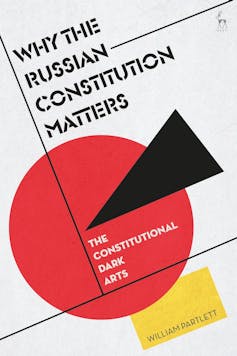views
It is well known former US President Donald Trump admires the power strongman leaders wield.
What is less well known are the problematic long-term constitutional consequences of this kind of strongman governance.
My new book reveals these consequences. It shows today’s strongmen rely on what I call the “constitutional dark arts”. This is a belief the constitutional centralisation of power in a leader is a better way to secure democracy, sovereignty and economic development.
Strongmen like Vladimir Putin in Russia, Viktor Orban in Hungary and Recep Tayyip Erdogan in Turkey do not disband democratic institutions such as courts, political parties, legislatures and elections. Instead, they co-opt them and use them to legitimise their centralised leadership.

My book shows this centralised constitutional system is unlikely to achieve democracy, sovereignty or economic development. Instead, it is more likely to foster a cycle of personalised, corrupt governance that is democratically unaccountable. It is also unable to protect sovereignty or economic wellbeing over the long term.
This is important for understanding the long-term, systemic threat Trump poses to America’s constitutional system of governance, should he be re-elected.
Trump and the constitutional dark arts
Trump is not only a clear advocate of centralised power, he is a devoted practitioner of the constitutional dark arts.
While president in 2019, for instance, he famously claimed Article 2 of the Constitution, which specifies the powers of the presidency, gave him the “right to do whatever I want”.
In response to charges he faces for allegedly attempting to overturn the results of the 2020 presidential election, Trump also argued presidents should enjoy “absolute immunity” for their actions.
Now running for re-election, Trump and his team plan to expand the power of the presidency over previously independent government agencies, such as the Department of Justice and the FBI.
Trump has justified this centralisation of power as being more democratic. He has repeatedly claimed a constitutionally empowered president is necessary to allow him to be the people’s “voice” in a system that is “rigged” against ordinary citizens. And he has labelled attempts to hold him legally accountable for his actions as “a threat to democracy”.
Trump has also argued centralised presidential power is necessary for securing economic development. For instance, he frequently argues he alone can fix the American economy. Recently, he has even argued presidents should have the power to direct the Federal Reserve in its decisions.
Finally, Trump argues only centralised presidential control can restore American sovereignty by stopping what he has depicted as a flood of immigrants “poisoning the blood of our country”.
Most notably, if elected, he has promised to act as “dictator” on day one of his presidency and issue an order closing the border.
Consequences of highly centralised power
My book shows the seductiveness of the claims of the constitutional dark arts, particularly in places where trust in government is eroding.
For instance, in Russia, Putin has persuaded a disillusioned Russian public centralising power in the office of the president is the best way to secure Russian sovereignty, economic development and democracy.
Over time, however, Russia shows how the centralisation of power has a corrosive logic, only creating more problems of governance. This kind of system is undemocratic, with leading opposition members jailed or killed. It is also weak and dysfunctional.
The centralised capture of institutions degrades their ability to operate effectively. Moreover, it allows a president to use public power and funds for personal gain, undermining sovereignty and economic development. For instance, Putin uses his control over Russia’s electoral commission to disqualify candidates who challenge his personal power.
Finally, it undermines the effectiveness of centralised decision-making, as reliable information is no longer passed upwards.
To take just one example, Putin’s decision to launch a full-scale invasion of Ukraine in 2022 was grounded on flawed intelligence suggesting Kyiv would fall in three days.
Identifying this dysfunctionality is critical to countering strongman governance. Russian opposition figure Alexei Navalny and his team have always been particularly good at this kind of messaging.
The threat this messaging poses to the Putin regime ultimately led to Navalny’s death and the exiling of his political team.
Lessons for American voters
This experience carries important lessons for American voters as they consider their choice in the upcoming election. The constitutional centralisation of power that Trump and his supporters propose will only further erode American democracy and threaten the key pillars of America’s economic prosperity.
A highly personalised foreign policy that discounts advice from the State Department or long-standing US allies could also weaken American sovereignty.
For instance, Trump’s insistence he would implement a hasty “deal” to end the war in Ukraine would show that America is an unreliable ally and embolden Russia and China to potentially take aggressive actions.
We have seen some of these corrosive consequences when Trump was president from 2017–21. This time, however, it appears he and his supporters are more committed than ever to the dangerous logic of the constitutional dark arts.
Moreover, trust in government in the United States has never been lower than it is now, furthering support for Trump’s brand of centralised, personalised governance.
This presidentialisation of the American constitutional system is not inevitable. Countering it requires pointing to its dysfunctionality and inability to address the real problems the American political system is facing.
William Partlett does not work for, consult, own shares in or receive funding from any company or organisation that would benefit from this article, and has disclosed no relevant affiliations beyond their academic appointment.
https://theconversation.com/donald-trump-insists-a-strongman-leader-will-help-america-my-new-book-explains-why-hes-wrong-238693











Comments
0 comment